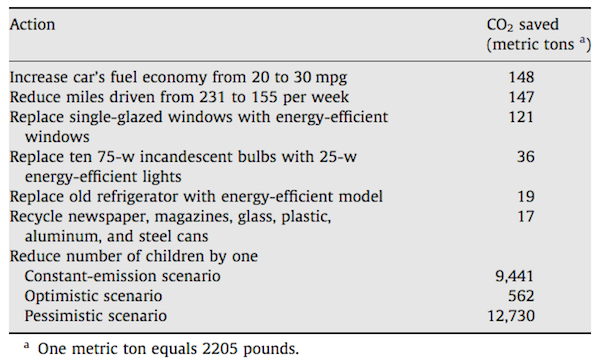Could we ever disincentivize having kids in order to save the planet?

So as long as I go childless, I can commute via stretch Hummer, guilt-free.
My wife, further proving that we are 100% on the same page regarding certain issues, shared this NPR story about the environmental impact of childbearing. Apparently all the things you do to be greener pale in comparison to just not adding another human to the world:
Oregon State University researchers have calculated the savings from all kinds of conservation measures: driving a hybrid, driving less, recycling, using energy-efficient appliances, windows and light bulbs.
For an American, the total metric tons of carbon dioxide saved by all of those measures over an entire lifetime of 80 years: 488. By contrast, the metric tons saved when a person chooses to have one fewer child: 9,441.
But when it comes time to “what do we do about it”, the topic gets even hotter (get it?):
Rieder proposes that richer nations do away with tax breaks for having children and actually penalize new parents. He says the penalty should be progressive, based on income, and could increase with each additional child.
Think of it like a carbon tax, on kids. He knows that sounds crazy.
No big deal, right?
Is it ethically right to try to persuade people not to have kids?
Is it fair to use financial incentives to accomplish this?
Could this ever possibly work in the real world we live in?
[Chart heading this post from original Oregon State University report.]